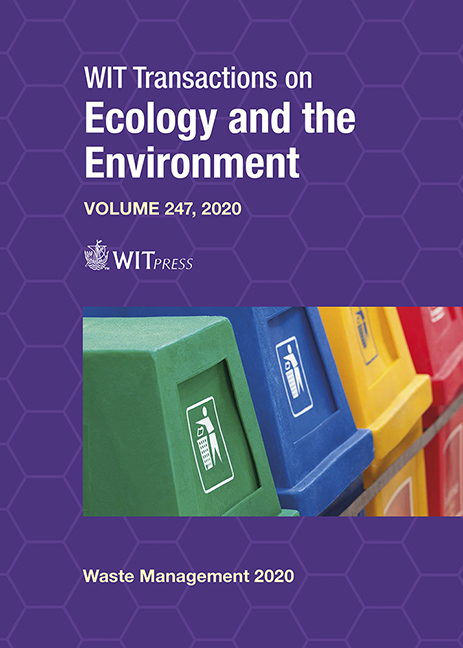COMPOUNDING AND PROCESSING HYDRO-BIODEGRADABLE PLASTIC FILMS FOR PLASTIC WASTE REDUCTION. PART I: PROCESSING CONDITIONS AND ENVIRONMENTAL PERFORMANCE AGAINST PLASTIC SOLID WASTE
Price
Free (open access)
Transaction
Volume
247
Pages
10
Page Range
93 - 102
Published
2020
Paper DOI
10.2495/WM200091
Copyright
WIT Press
Author(s)
HAJAR JAWAD KARAM, MASUMAH AL-QASSIMI, MAJED HAMEED AL-WADI, AISHA ABDULLAH AL-ROWAIH, ABDUL SALAM AL-HAZZA’A, SULTAN MAJED AL-SALEM
Abstract
The reliance on conventional polymeric materials derived from petrochemical sources, has been associated with various environmental burdens and stressors that are well documented. These are namely associated with the overall carbon print of plastics conversion and an overwhelming accumulation of solid waste; which on the other hand is associated with soil and water aquifers poisoning in many regions the world over. In this work; and in an effort to develop a polymeric blend that can sustain itself in terms of mechanical integrity, thermoplastic starch polyester was converted with virgin linear low density polyethylene (LLDPE) and a plastic solid waste (PSW) component retrieved from municipal sources. The objective in this communication is to study the effect of different compounding conditions on the resulting blends which were characterized using scanning electron microscopy (SEM), mechanical profiling in accordance with ASTM 882-12 and physical-optical properties determination. The blends were originally prepared using single screw extrusion (SSE), twin screw extrusion (TSE) and blown-filming, to determine which of the processes are more reliable for industrial bulk production purposes in the future to establish a plastic conversion line suitable for biodegradable plastic film conversion.
Keywords
biodegradation, polyester, starch, polymer waste, waste management





